Few people would not be the worse for complete sincerity.
F. H. BRADLEYThe one self- knowledge worth having is to know one’s own mind.
More F. H. Bradley Quotes
-





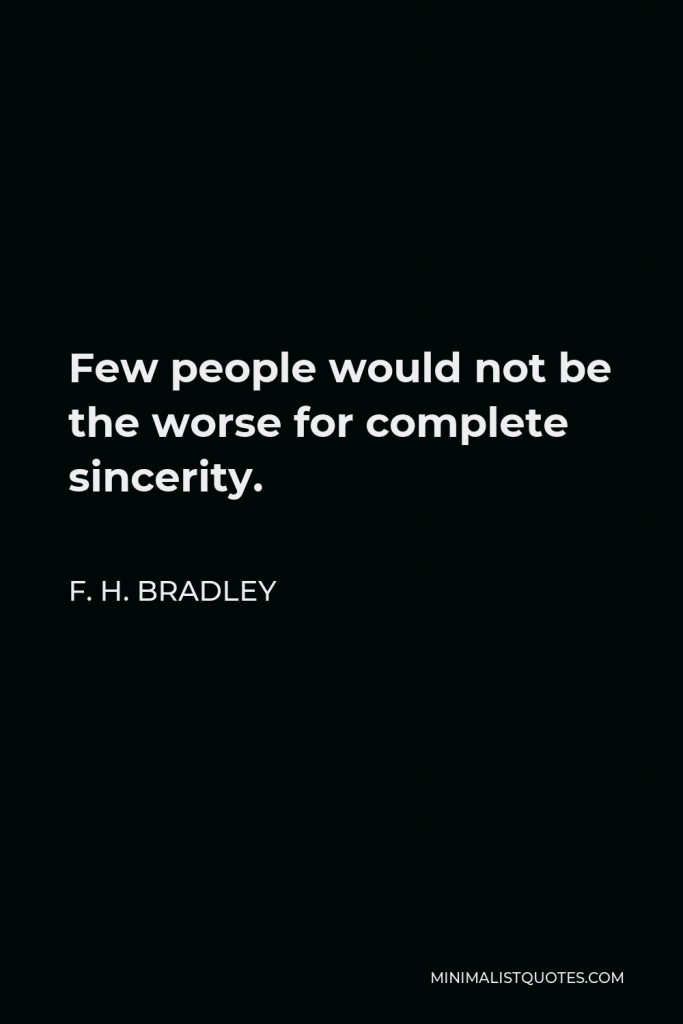

-





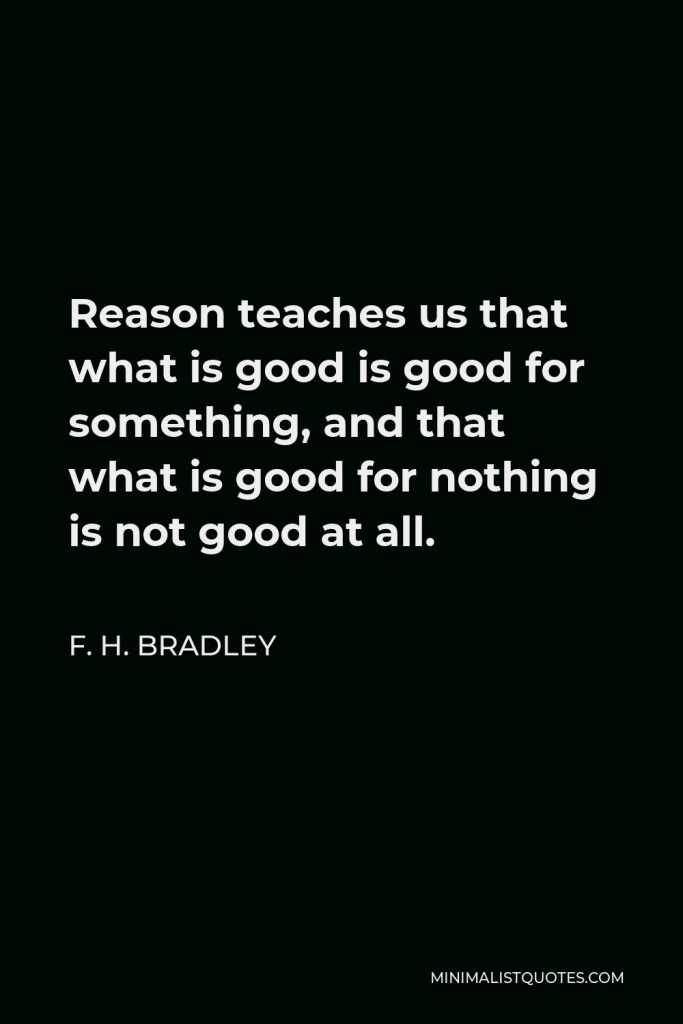

Reason teaches us that what is good is good for something, and that what is good for nothing is not good at all.
F. H. BRADLEY -





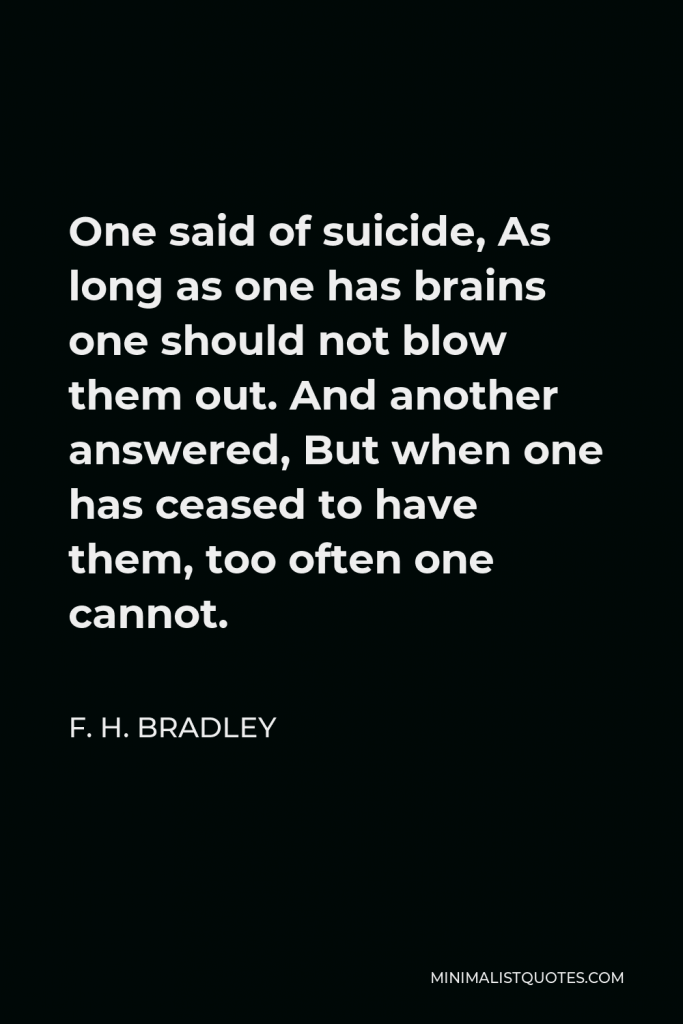

One said of suicide, As long as one has brains one should not blow them out. And another answered, But when one has ceased to have them, too often one cannot.
F. H. BRADLEY -





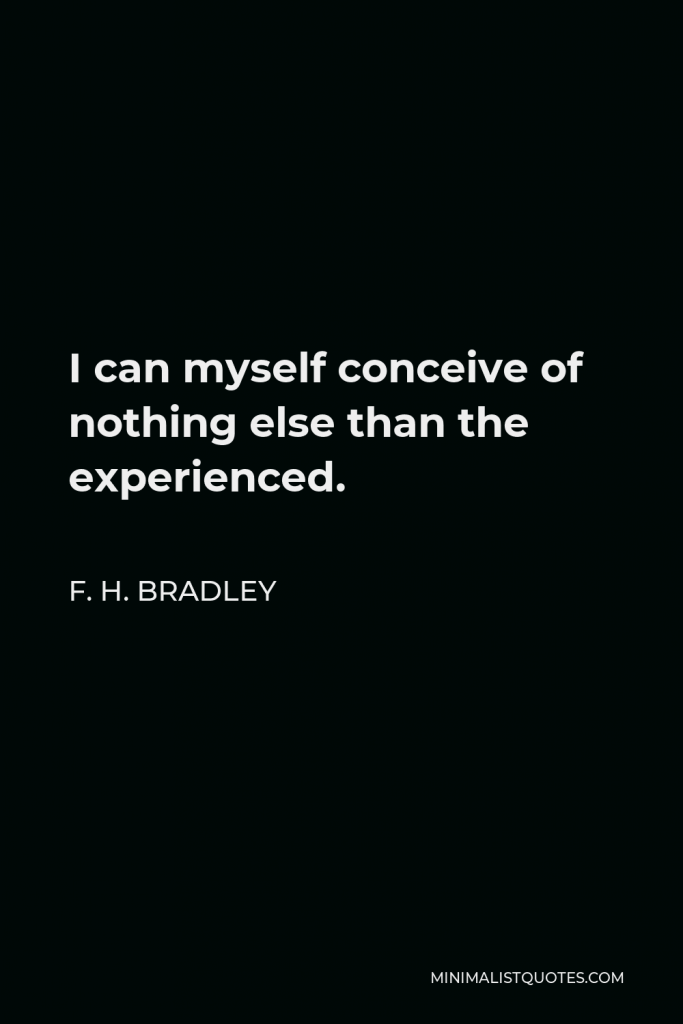

I can myself conceive of nothing else than the experienced.
F. H. BRADLEY -





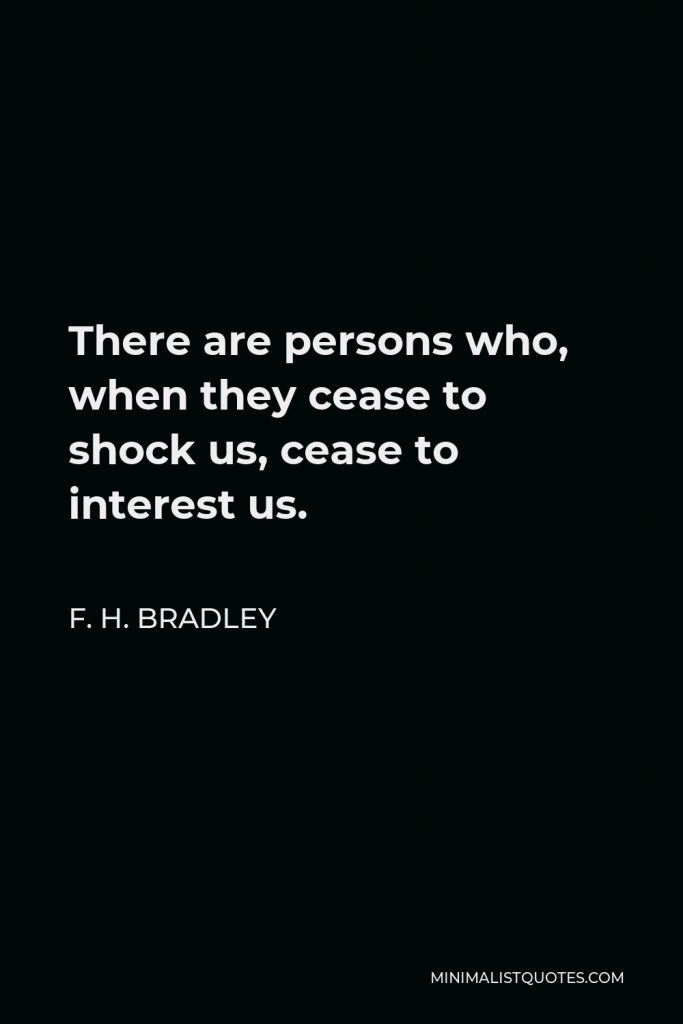

There are persons who, when they cease to shock us, cease to interest us.
F. H. BRADLEY -





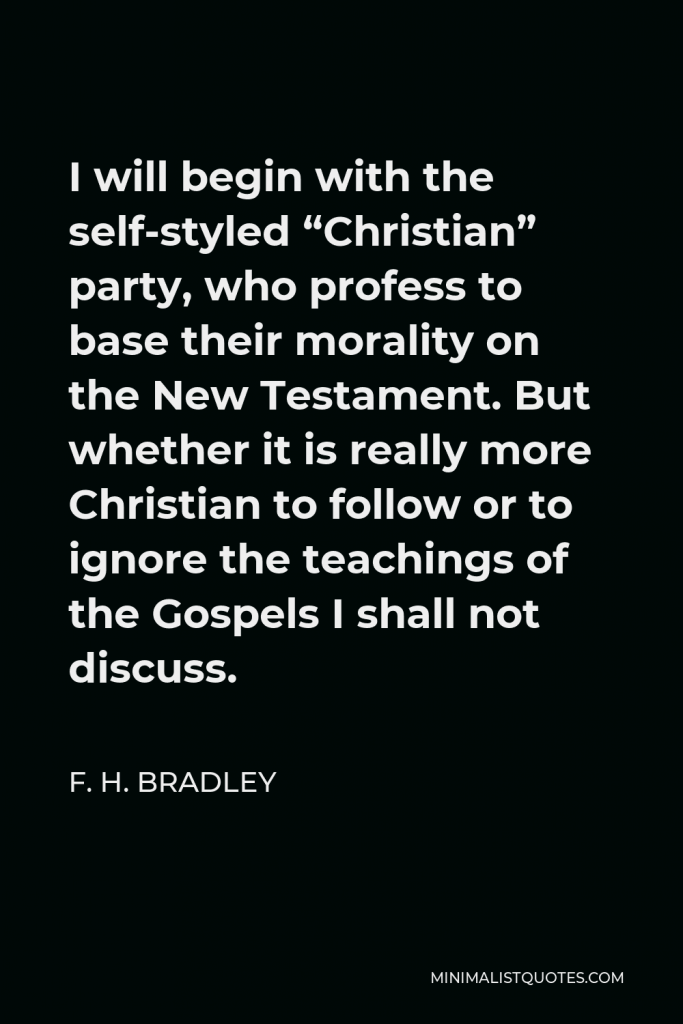

I will begin with the self-styled “Christian” party, who profess to base their morality on the New Testament. But whether it is really more Christian to follow or to ignore the teachings of the Gospels I shall not discuss.
F. H. BRADLEY -





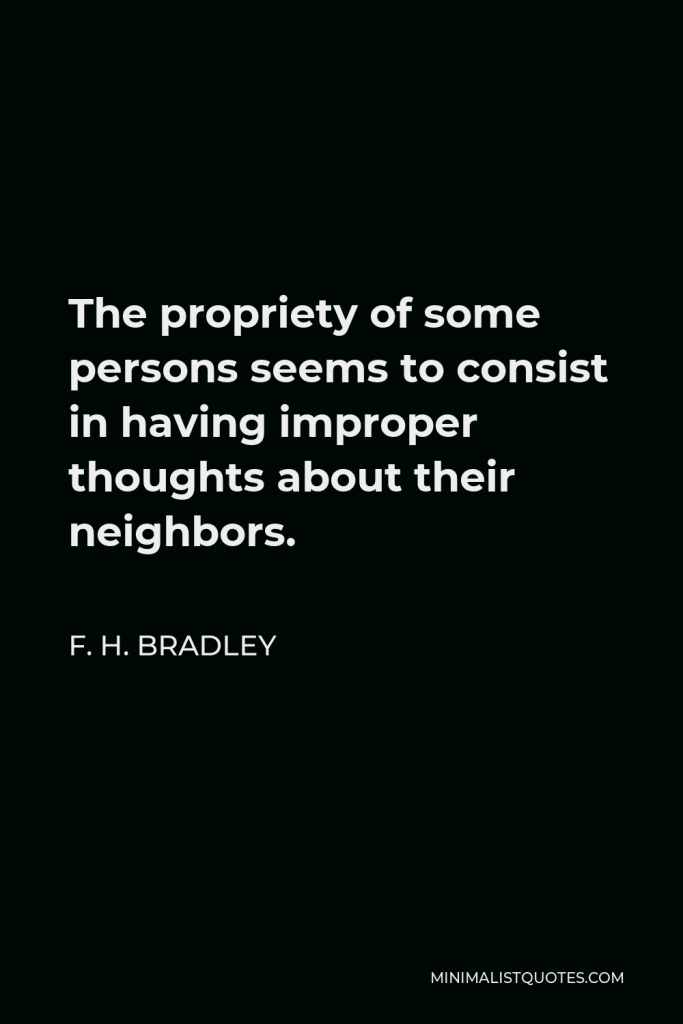

The propriety of some persons seems to consist in having improper thoughts about their neighbors.
F. H. BRADLEY -





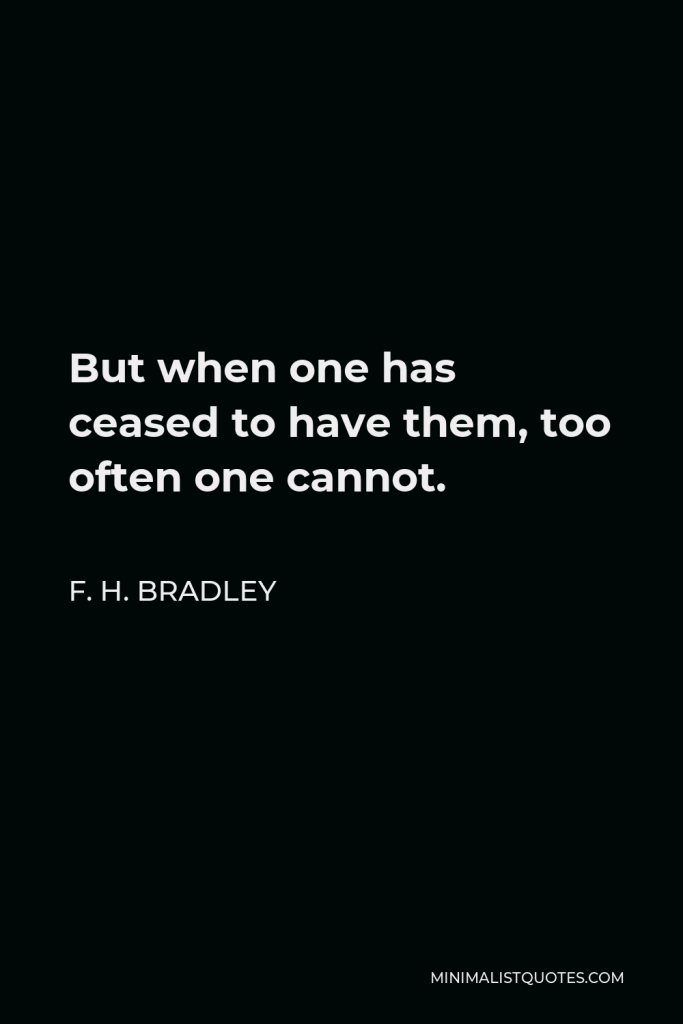

But when one has ceased to have them, too often one cannot.
F. H. BRADLEY -





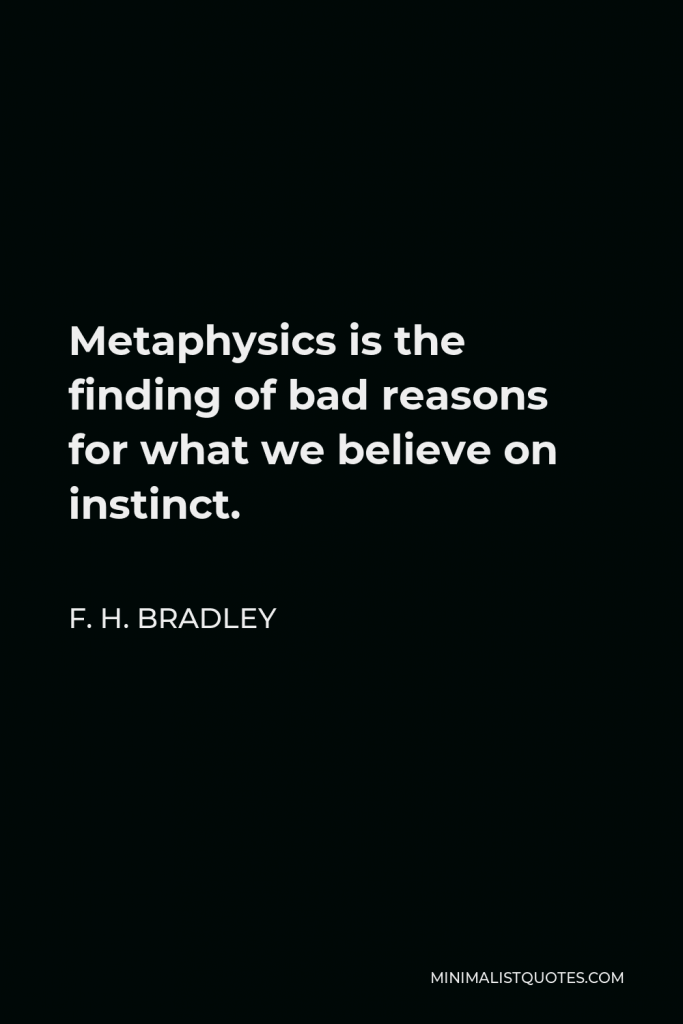

Metaphysics is the finding of bad reasons for what we believe on instinct.
F. H. BRADLEY -





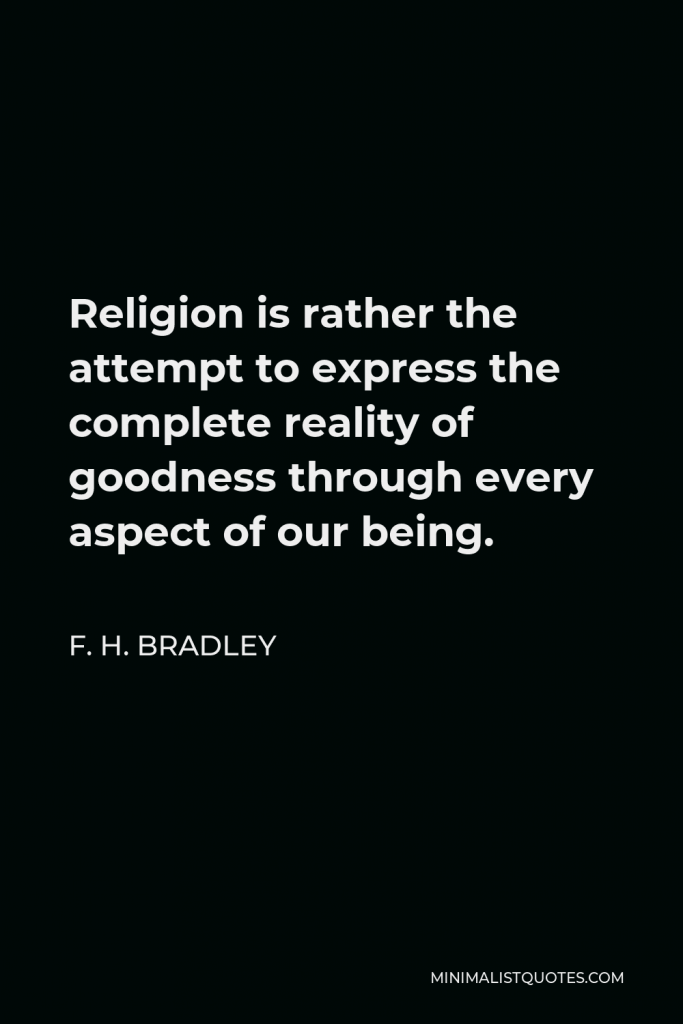

Religion is rather the attempt to express the complete reality of goodness through every aspect of our being.
F. H. BRADLEY -





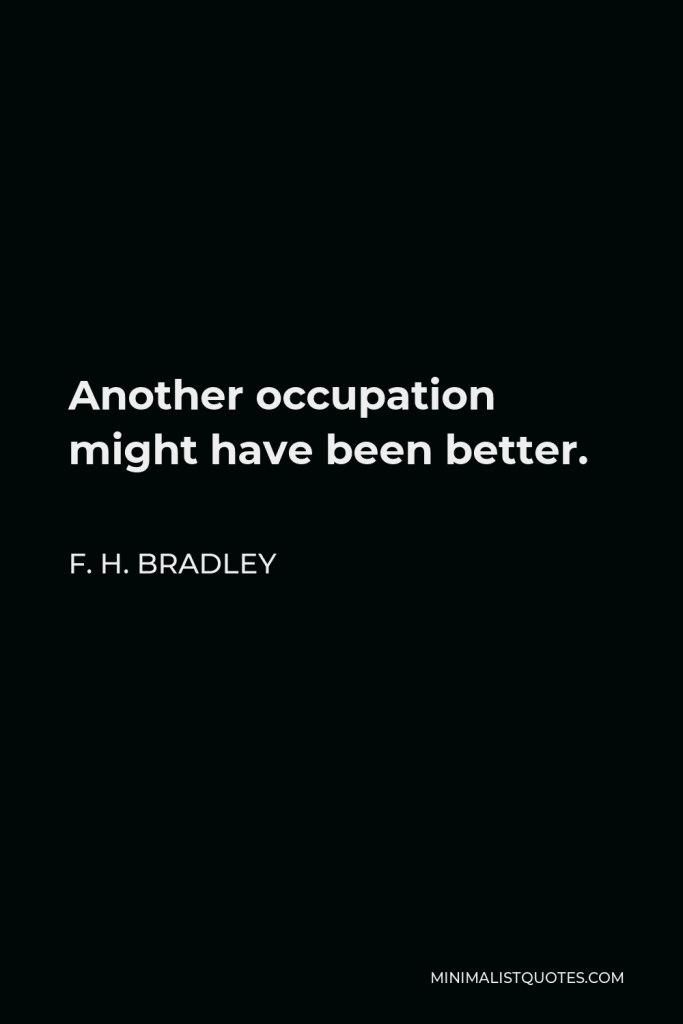

Another occupation might have been better.
F. H. BRADLEY -





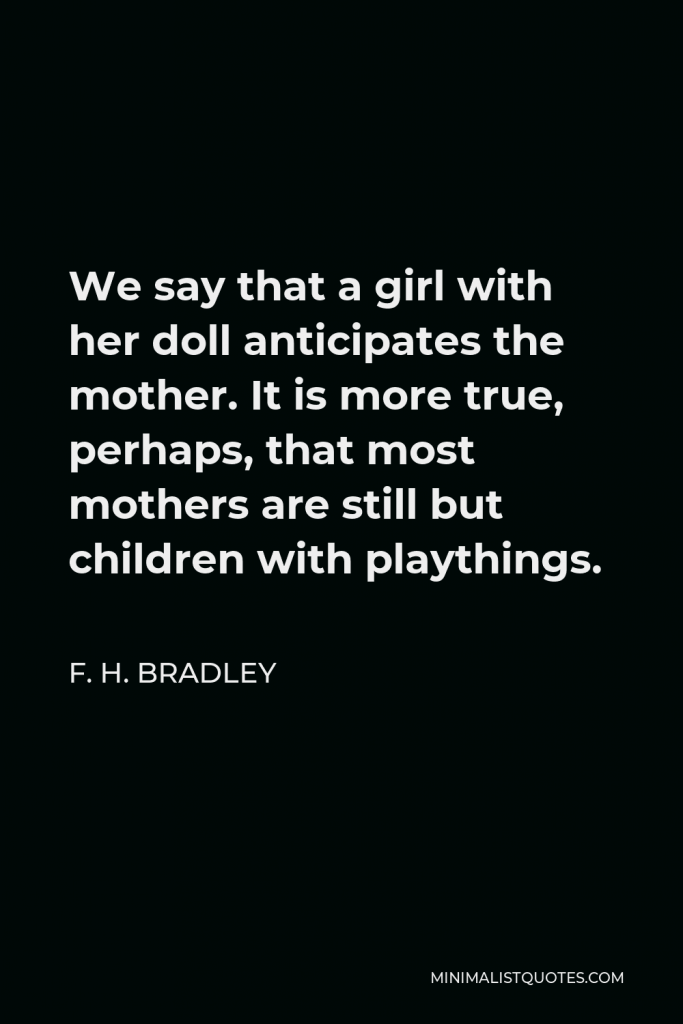

We say that a girl with her doll anticipates the mother. It is more true, perhaps, that most mothers are still but children with playthings.
F. H. BRADLEY -





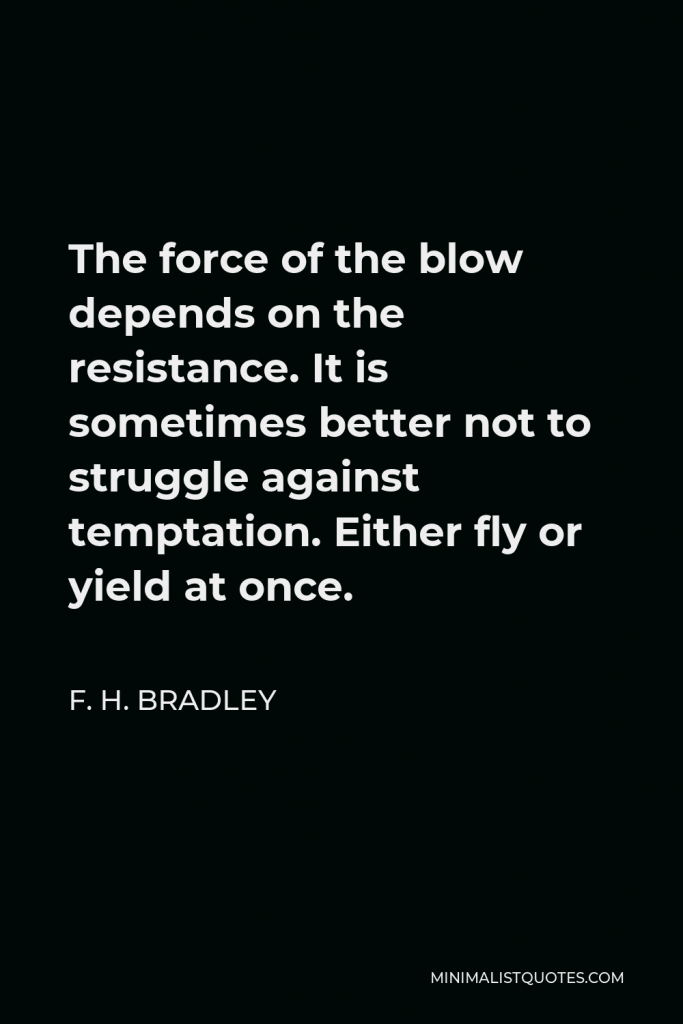

The force of the blow depends on the resistance. It is sometimes better not to struggle against temptation. Either fly or yield at once.
F. H. BRADLEY -







The deadliest foe to virtue would be complete self-knowledge.
F. H. BRADLEY -





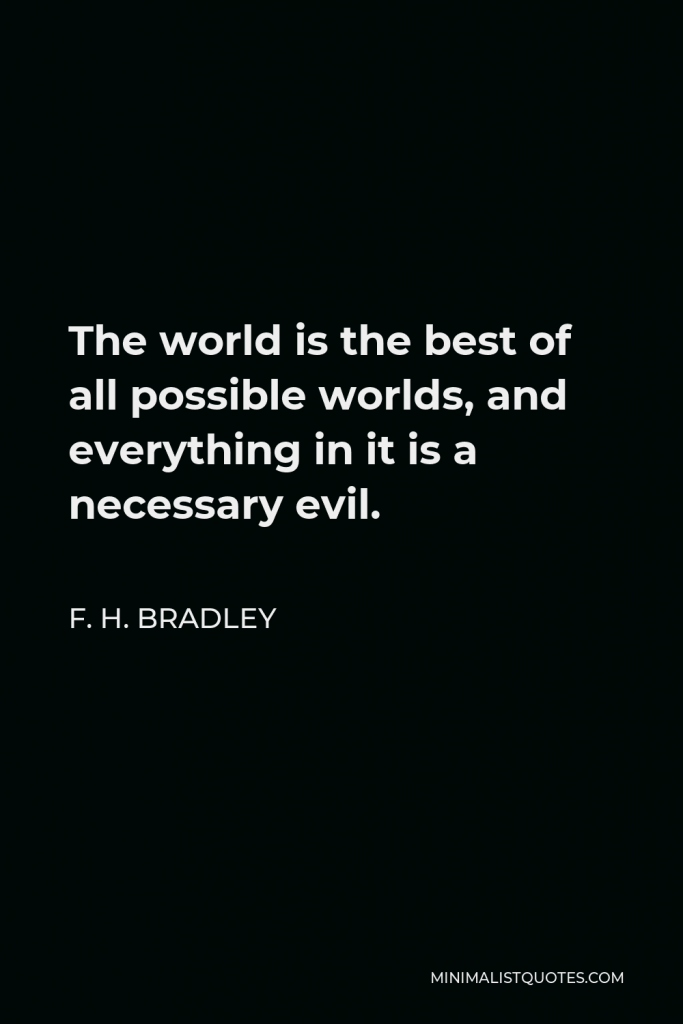

The world is the best of all possible worlds, and everything in it is a necessary evil.
F. H. BRADLEY -





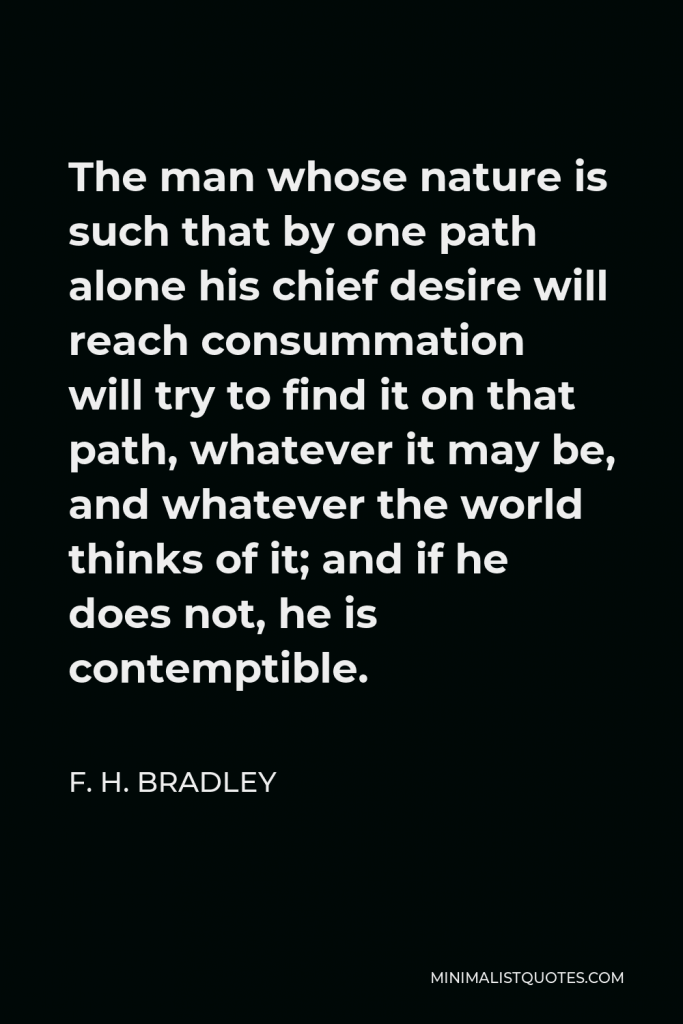

The man whose nature is such that by one path alone his chief desire will reach consummation will try to find it on that path, whatever it may be, and whatever the world thinks of it; and if he does not, he is contemptible.
F. H. BRADLEY







